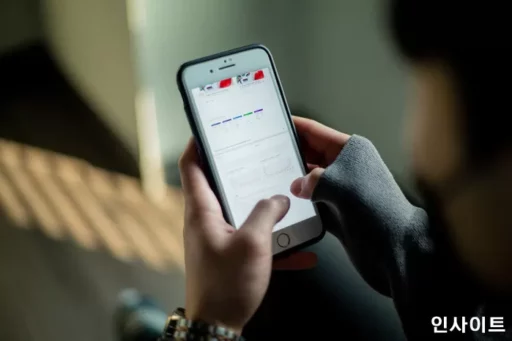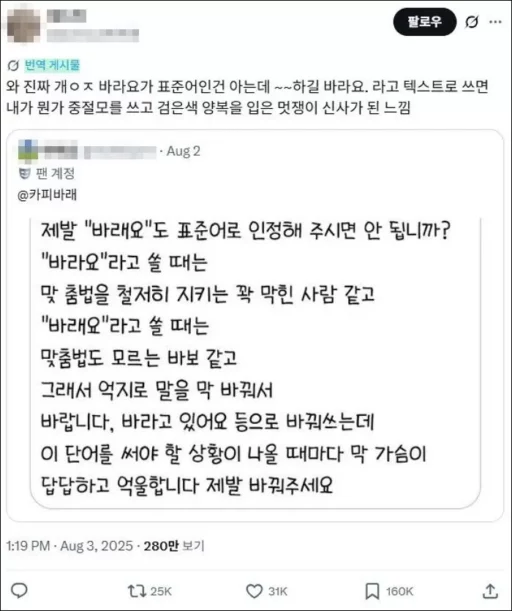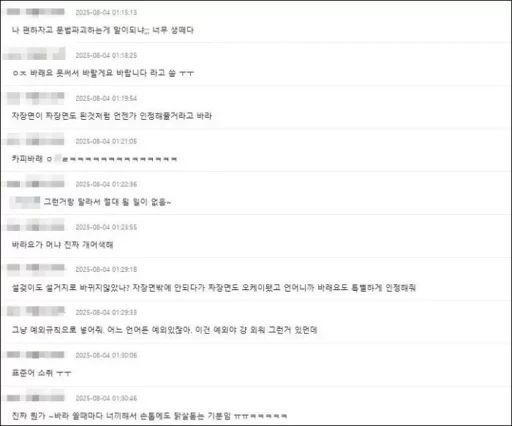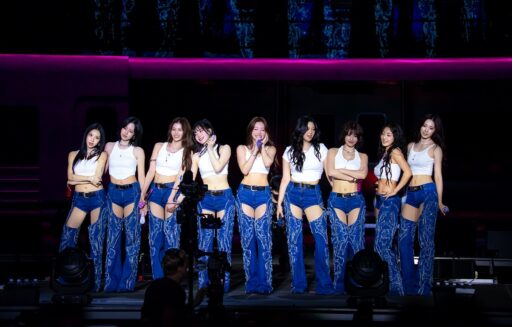There is an ambiguous spelling similar to "짜장면" and "자장면," and that is "바라다."
In the case of "바래다," it means that something has changed color due to sunlight or moisture, but many people also use "바래다" when they want or wish for something in their daily lives.
About 14 years ago in the summer, opinions have emerged that "바라다" should also be considered an acceptable expression, just as the National Institute of the Korean Language recognized "짜장면" as the standard language used by the majority of the public.
Recently, a netizen expressed on X (formerly Twitter), "Could you please recognize '바래요' as a standard language?" They lamented, "When I use '바라요', I feel like a rigid person who strictly adheres to grammar, and when I use '바래요', I feel like a fool who doesn't know grammar at all."

They further pleaded, "It’s suffocating and frustrating to have to awkwardly change my words to '바랍니다', '바라고 있어요', etc. every time I come across a situation where I should use this word. Please change it."
The post garnered around 2.8 million views, resonating with many netizens.
However, there are opposing views suggesting that just because it is inconvenient, it shouldn’t lead to changes.
On the other hand, it has been argued that since "바래다" already holds meaning, changing the spelling just because many people are mistaken could lead to confusion.

Some netizens voiced resistance, stating, "It's more correct to write '바라', thus '바래' feels awkward," "Is it reasonable to destroy spelling just for my own comfort?" and "How are we supposed to distinguish it from something that has faded in color?"
Meanwhile, the National Institute of the Korean Language has been recognizing multiple standard forms since 2011 for words that widely used by the public but diverged from official spelling policy. Notable examples include "이쁘다" and "예쁘다," "짜장면" and "자장면," and "태껸" and "택견."

Image source: Reference photo for article understanding / Photo = Insight, X capture, online community capture.


